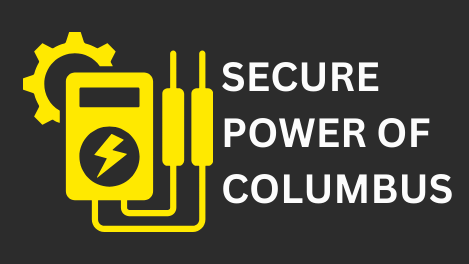
Whole House Generator in Briggsdale OH
A whole house generator is a large, stationary power system designed to provide electricity to an entire home during a power outage. Unlike smaller, portable generators, these systems are permanently installed and can keep your home running smoothly even when the main power supply is interrupted. There are two main types of whole house generators: standby and automatic.
Standby generators are powered by natural gas or propane and are installed outside the home. They automatically start when the power goes out and can supply electricity to the entire house. Automatic generators, often referred to as automatic standby generators, operate with a transfer switch that ensures a seamless transition from the main power supply to the generator.
How It Works
Whole house generators work by connecting to your home's electrical system through a transfer switch. This switch detects when the power is out and automatically turns on the generator. Once activated, the generator begins to produce electricity, which is then routed through the transfer switch and into your home’s electrical system. This process ensures that critical appliances, heating systems, and lights continue to operate normally during a blackout.
How It Differs from Portable Generators
While portable generators can also provide backup power, they differ significantly from whole house generators. Portable generators are typically smaller, less powerful, and require manual operation. They need to be set up and connected to appliances with extension cords, and they often only power select devices or circuits. In contrast, whole house generators are more powerful, capable of handling the electrical load of an entire home, and provide automatic, seamless operation without the need for manual intervention.

We will get back to you as soon as possible.
Please try again later.
Professional Installation Process
Installing a whole house generator involves several steps and requires professional expertise. The process begins with an assessment of your home’s electrical needs and the appropriate generator size. After selecting the right generator, a professional installer will position the unit outside your home, typically on a concrete pad. The generator is then connected to your home’s electrical system via a transfer switch. The installation also includes testing the system to ensure it operates correctly and making any necessary adjustments. Proper installation is crucial for the safe and efficient operation of the generator.
Maintenance and Care
To ensure the reliable operation of your whole house generator, regular maintenance is essential. This includes routine inspections, oil changes, and filter replacements. It's also important to test the generator periodically to confirm that it will start and run properly during an outage. Scheduling regular maintenance with a professional service provider can help identify potential issues before they become major problems, ensuring your generator remains in top working condition.
Costs and Financing
The cost of a whole house generator can vary widely based on factors such as the size of the generator, installation complexity, and additional features. On average, the cost can range from several thousand to tens of thousands of dollars. Financing options are available to help manage these costs, including payment plans and loans. Many providers offer financing solutions to make the investment more manageable. It's a good idea to consult with a local dealer to get a detailed estimate and explore financing options that suit your budget.
What Are the Benefits?
A whole house generator offers several key benefits. It provides uninterrupted power supply, which is crucial for maintaining comfort and safety during a power outage. This includes keeping essential systems like heating, cooling, and medical equipment running. Additionally, whole house generators increase property value and provide peace of mind knowing that you are prepared for any power interruptions. The convenience of automatic operation and the ability to power your entire home make it a valuable investment for homeowners.
What We Offer
We offer comprehensive services for
whole house generators in Briggsdale, OH, including installation, maintenance, and repair. Our team of experienced professionals is dedicated to ensuring that your generator operates efficiently and reliably. We provide expert advice on selecting the right generator for your needs and offer top-quality installation and maintenance services. With our support, you can enjoy the benefits of a whole house generator with confidence.
- Residential Generators
- Commercial Generators
- Portable Generators
- Electric Generators
- Propane Generators
- Solar Generators
- Generator Repairs
- Generator Maintenance
- Generator Parts
Common Misconceptions
There are several misconceptions about whole house generators. One common myth is that they are too expensive to justify the cost. While the initial investment can be significant, the benefits of having a reliable power source during outages can outweigh the expense. Another misconception is that whole house generators are noisy and disruptive. Modern generators are designed to operate quietly and efficiently. Additionally, some believe that these systems are high-maintenance, but regular upkeep is straightforward and manageable with professional help.
Troubleshooting Common Issues
Common issues with whole house generators include problems with starting, fuel supply issues, and maintenance-related faults. If your generator fails to start, it could be due to a dead battery or a malfunctioning transfer switch. Fuel supply issues might arise if there’s an interruption in gas or propane service. Regular maintenance, including checking the battery, fuel levels, and filters, can help prevent these problems. If you encounter persistent issues, it's best to consult with a professional technician to diagnose and resolve the problem.
Frequently Asked Questions (FAQs)
Q: How often should I run my whole house generator? A: It is recommended to run your generator for about 15-30 minutes every month to ensure it remains in good working condition.
Q: Can a whole house generator run on natural gas? A: Yes, many whole house generators are designed to run on natural gas or propane, depending on your setup.
Q: How long will a whole house generator run during an outage? A: The runtime of a generator depends on its fuel capacity and the load it is powering. Typically, a generator can run for several hours to several days on a full tank of fuel.
Q: Do I need a permit for installing a whole house generator? A: Yes, installation usually requires a permit, and a professional installer will handle the necessary paperwork and inspections.
Q: What maintenance is required for a whole house generator? A: Regular maintenance includes checking the oil level, replacing filters, and inspecting the battery. Scheduling annual professional maintenance is also recommended.
For more information about whole house generators or to schedule an installation in Briggsdale, OH, contact us today. Our team is here to answer your questions, provide expert recommendations, and ensure that your home is equipped with a reliable power backup solution. Don’t wait until the next power outage—reach out to us now to get started on securing your home with a whole house generator.
Let's Connect!
We offer top-notch whole house generator solutions. Our team is dedicated to ensuring your home stays powered during outages. Learn about How Whole House Generators Work in our Buyer's Guide. Don't let unexpected power outages disrupt your life. Contact us today for reliable backup power solutions and embrace a worry-free lifestyle.